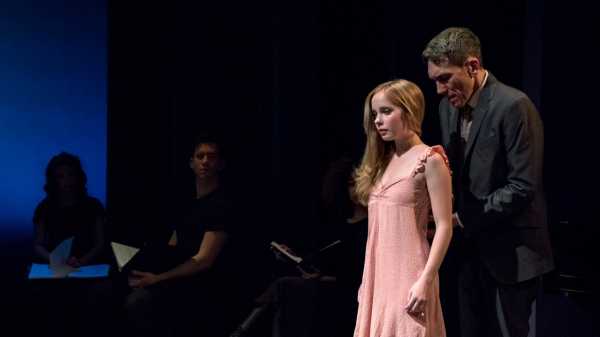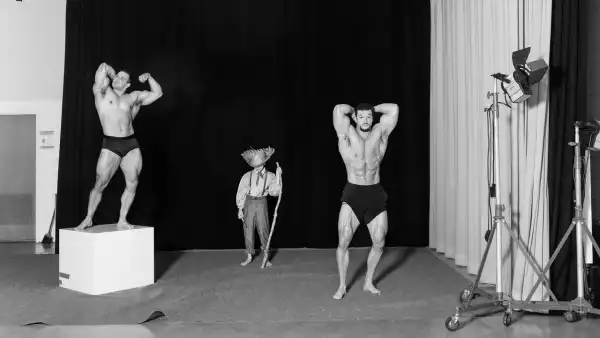
In February, 1971, a Broadway-bound musical version of Vladimir Nabokov’s “Lolita,” with a book and lyrics by Alan Jay Lerner and a score by John Barry, went to Philadelphia, for a five-week tryout that gave out eleven nights after opening. The reviews of “Lolita, My Love” had been savage, and the cast was confounded. The show shut down for repairs and, in March, reopened in Boston, with a new director and a fresh nymphet—thirteen-year-old Denise Nickerson, who had recently completed her role as Violet Beauregarde in “Willy Wonka & the Chocolate Factory.” The Boston run also expired prematurely, after nine shows. The Broadway opening was cancelled. “Lolita, My Love” was relegated to a special place in the history of flops.
Yet this renowned catastrophe has its defenders. In “Not Since Carrie: 40 Years of Broadway Musical Flops,” Ken Mandelbaum assigned “Lolita, My Love” “the singular distinction of being both a complete mistake and a superb adaptation, with a marvelous score and perfect leads, of one of the great novels of the twentieth century.” In “One More Kiss: The Broadway Musical in the 1970s,” Ethan Mordden called it “too dark to live”: “a tragic romance that is too sinful to be romance.”
On the occasion of Lerner’s centenary, the York Theatre Company is presenting concert stagings of three of the bombs that followed the librettist’s great triumphs, with composer Frederick Loewe. “Lolita, My Love” runs through March 3rd, in a production directed by Emily Maltby, with a score reconstructed by Deniz Cordell and a script, edited by Erik Haagensen, from six of Lerner’s drafts, including two written after the show closed. Its first act is weird and perfect; the second indicates the limits of this salvage operation. In “The Complete Lyrics of Alan Jay Lerner,” the editors ask, in a headnote, “How could songs and laughter be woven into a sinister story of a murderous pedophile?” In other words, how do you solve a problem like “Lolita”? You don’t, not entirely, but the attempt offers a rare view of a masterpiece.
The musical is less in conversation with Nabokov’s novel than with Nabokov’s screenplay for Stanley Kubrick’s 1962 film adaptation of it and, more so, the film itself, which, to the novelist, was “a blurred skimpy glimpse of the marvelous picture I imagined.” This production opens with the title song, which enters on a horror-film tinkle, and then mingles tenderness and pain in the sweet agony of its waltz. To Lolita, Humbert (Robert Sella) sings, “You’ll have time tomorrow / to learn of the sorrow / of love.” The honey of his self-pitying voice cherishes the vulnerability he aims to exploit.
The show frames Humbert’s narrative as a confession made not to “John Ray, Jr., Ph.D.” (the purported editor of the book) but to Dr. June Ray (Thursday Farrar), a prison psychiatrist who proves to be a necessary invention. Her presence measures our distance, and her double takes reflect our disgust and distrust. Humbert is halfway seductive with his chiming about love; Dr. Ray is there to say, “Love? Love requires acting in the best interests of the beloved.” She filters pathological fancy from plain fact.
The first proper number stars Clare Quilty, in prelude to his murder. It’s “Going, Going, Gone,” a decadent’s catchy exhortation to seize the night and crush the rosebuds. (Barry, the composer, is most famous for his work on James Bond films; “Going, Going, Gone” has been a cabaret staple of “Goldfinger” ’s Shirley Bassey.) The actor in the part, George Abud, evokes the snapping comedy of Peter Sellers’s portrayal of Quilty; each has a Groucho Marx edge to his taunts. And there is something of Harpo to Quilty’s silent companion, Vivian Darkbloom (Becca Fox), with her curly hair and clever bulb horn.
From there, from the frame within the frame, we page back to Humbert’s arrival in the New England town of Ramsdale, where he agrees to board with the fatuous widow Charlotte Haze upon catching sight of her daughter sunning herself in the garden. The Lolita of the play is specified as fourteen years old, perhaps because this is fractionally more palatable than the twelve-year-old of the novel; the actor wearing her Keds, Caitlin Cohn, is in her twenties, which helps a great deal more. “In the Broken Promise Land of Fifteen” is Humbert’s delicate lament for Lolita’s precursor—whom he loved when he was a child and she was a child, in a princedom by the sea—and it links the text to Nabokov in a way that Kubrick does not.
You get your showstopper with “Sur Les Quais,” in which Mrs. Haze (Jessica Tyler Wright), a vulgar Europhile, lifts a torch song of the Edith Piaf type, imagining, in her Frommer’s-guide French, that her hopeful romance with Humbert satisfy her longing for culture and love. The number, granting Charlotte a richness that she lacks on Nabokov’s page and in Shelley Winters’s performance in Kubrick’s film, gives real pathos to a character who is otherwise a pathetic figure of fun.
Then she passes on—fatally hit by a car, just after she discovers Humbert’s diary and its awfulness, just before he can kill her. The first act ends there. Really, there is nowhere else for it to go. In the novel, Humbert first rapes Lolita late in Part 1; you cannot leave a theatre audience to chew that over while stretching their limbs in the lobby. Instead, that happens after the second-act opener, “At the Bed-D-By Motel”—a vaudevillian comic number humming with fun and kazoos—under the cover of Humbert’s imploring “Tell Me, Tell Me,” in which he promises to buy her bubble gum and bluejeans and movie magazines. Lolita listens. The sensitivity of Humbert’s earlier numbers sets us up to not realize what is happening until it is over.
Which is when the bloom and the show’s enchantments end, despite the hatred pulsing under the jaunty tune of Lolita’s reproachful, subsequent song “All You Can Do Is Tell Me You Love Me” (“that corny refrain / you sing as you slip on / my collar and chain”) and the excellence of a number collapsing the geographical catalogue of Humbert and Lolita’s cross-country travels, with its endless paranoia and rising desperation, a joyride sick with terror. In print, with the watermarks of Nabokov’s patterns showing behind the narrative, you get the catharsis of a clean descent for Humbert. Onstage, the flesh-and-blood actor in front, you can only see a pathetic villain, and you retreat to the real world with a sense of relief. I found myself agreeing with Mordden that “Lolita, My Love” “is a brilliantly unpleasant show.” Catch it if you can. Look at this tangle of thorns.
Sourse: newyorker.com






